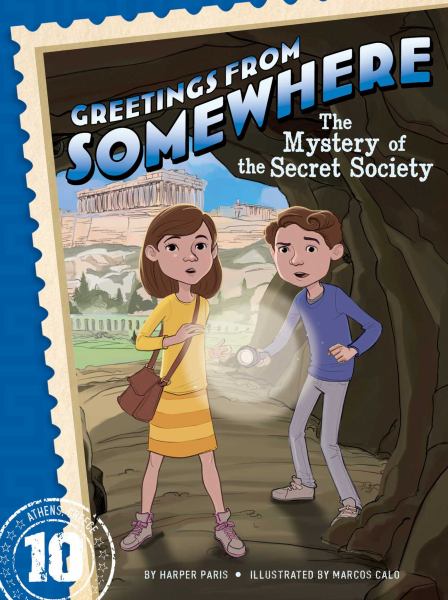
I can't tell you the secret (there are actually quite a few secrets, by my reckoning), but when you read this novel - if you've read The Dressmaker (and why would you read this novel without having read The Dressmaker?) - make sure you read it in a room with heavy drapes, as you will want to fling it against the wall, and that could do some damage.
#The secret society book movie#
You know in the later Back to the Future films, where it was revealed that there were now things going on just around the corner that the characters in the original movie couldn't see, but if they could have seen it would change everything? It's like that. She actually introduces important character details that were hidden in what should have been plain sight, but were not even hinted at in the original novel. In doing so, she reshaped the original novel. Twenty years passed, and Rosalie Ham went back to Dungatar, to write this novel, jauntily sporting the eHarlequin title The Dressmaker's Secret. The aim of this task is for students to compare and contrast the depiction - through fictionalised truth - of the tensions that play out in isolated communities.Īll in all, a pretty good bag of successes for what was basically a writing assignment.

The novel (sadly, not the film) was picked up by the education department's VCAA for Year 12 English students to study, pairing it with Arthur Miller's harrowing play The Crucible, with which you may be familiar (or at least know the story).
#The secret society book Patch#
A production team went out to a noxious weed research centre near Geelong, and - on a patch of wasteland - created a Dungatar that was just begging to be burnt to the ground, as per gothic convention. Incredibly, it was made into a movie, starring some notable actors, including Kate Winslet. It is a novel that gives the harsh truths about living in a small country town, the ones not mentioned in the treechange pamphlets and instagram accounts. Somehow, it touched a nerve in its readers, and moments of true insight and lived experience broke through all the gothic nonsense to elevate it to the status of a stinging critique of the lengths small-minded people will go to in order to make themselves seem important. It featured a cast of gothic-normal characters with placeholder names lines "Una Pleasance", who was unpleasant, "Evan Pettyman", who was a petty man, "Beula Harridene", who was a harriden. Criticism ĭespite largely positive response in reviews, perhaps due to the (probably justified) assumption that powerful wealthy elites are indeed, shall we say, not as beneficent as one would hope, Ian Lulach Edwards has succinctly observed in a review that adequate - or even any - real references or citations are largely absent, leaving it as an academic, therefore factually reliable work, drastically wanting.Many, many years ago, at the turn of the century, Rosalie Ham wrote a gothic novel as part of her creative writing course at RMIT, right here in Melbourne. The book was also reviewed in other sources such as Noseweek and The Star. In the Mail & Guardian Shaun De Waal wrote that "In The Secret Society, Brown explores the enigma of Rhodes, delving into his homosexuality more deeply than any work on him so far and showing how Rhodes's dreams of an expanded British empire were codified early in his career" In Business Day Richard Steyn wrote "by challenging the conventional wisdom about Rhodes, The Secret Society provides a stimulating and thought-provoking read" but criticised the lack of a bibliography and the small number of references

The book draws on diaries and letters and also investigates and supports suggestions Rhodes was gay.

The book suggests the society continued to have influence in British and world affairs, citing the Rhodes Scholarship and alleged links between the society and Chatham House and alleged influence on the peace terms to end World War I and appeasement of Hitler. The Secret Society examines Cecil Rhodes, his life and the secret society he founded with the ambition of bringing the world under British rule. The Secret Society: Cecil John Rhodes's Plan for a New World Order is a 2015 book by Robin Brown.


 0 kommentar(er)
0 kommentar(er)
